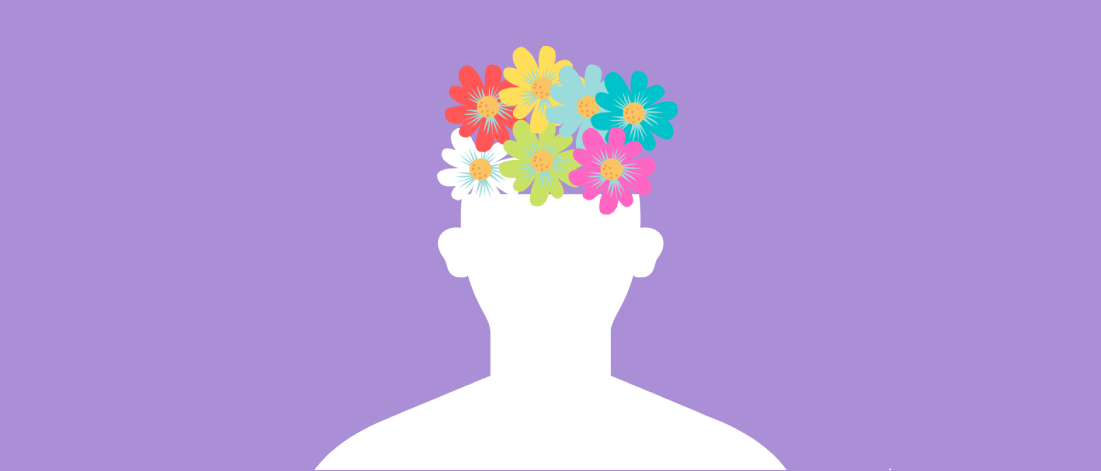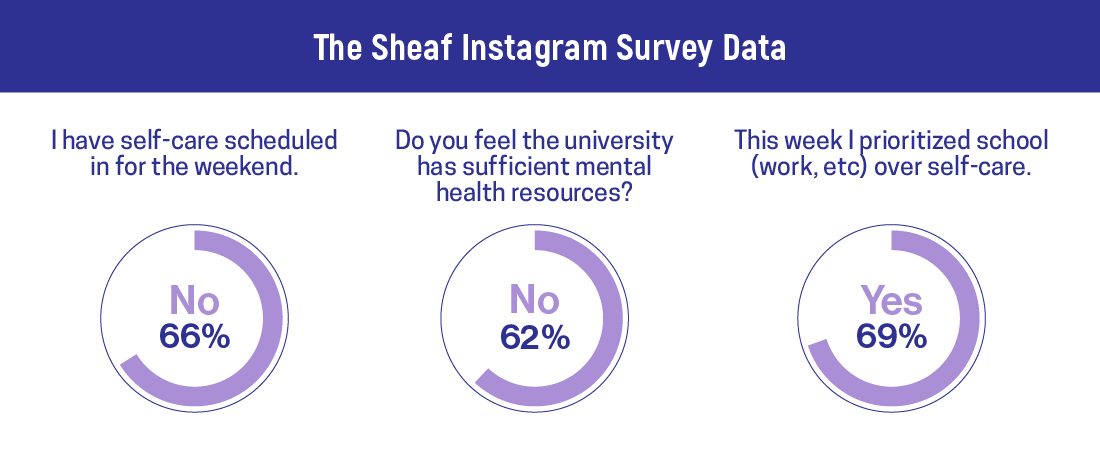
Mental health has taken a mainstream spotlight this year in the news. From Simone Biles’s decision to withdraw from some Olympic events to Montreal Canadiens goaltender Carey Price’s decision to enter the NHL player assistance program, many have taken the public stance that it is okay not to be okay and stressed the importance of prioritizing their mental health.
But has this important conversation become mainstream at our university yet?
Mental health is a topic that tends to be ever-present on campus but rarely discussed openly. Many students I’ve met over the years have been stressed and worried, to various extents, about school, work, financial stress and other aspects of their lives. Yet, in my experience, very few conversations about mental health happen and there are even fewer institutional spaces on campus to have these conversations in the first place.
The data on mental health and young people is staggering.
The Centre for Addiction and Mental Health says that one in five Canadians experience a mental illness or addiction and by the time Canadians reach age 40, one in two will have had or have a mental illness. Furthermore, young people, aged 15 to 24, are the most likely age group to experience mental illness and substance use disorders.
A national survey of Canadian colleges and universities says one fifth of students are depressed, anxious or battling other mental health issues. And the numbers of distressed students are increasing.
Despite the prevalence of mental illness, there is significant stigma around it compared to other illnesses. So much so that a CAMH survey shows that only 50 per cent of Canadians would tell the same people about a family member with mental illness. In comparison, an increased 70 per cent of Canadians would discuss, with friends or co-workers, about a family member having cancer or diabetes.
There are also serious consequences to not seeking help.
University is a journey full of change and there can be points of stress throughout it, but experiencing mental health issues can make the journey even harder. Without adequately addressing mental health issues, students’ wellbeing, school work and learning can be negatively impacted.
When writing this article, I wanted to get a quantitative sense of students’ mental health and their feelings towards university support regarding it. The Sheaf conducted a survey on Instagram asking students who follow our account and 175 of them responded concerning their stress levels and self-care practices.
The majority of respondents told us that they moderately experienced high levels of stress during the week. What’s more concerning is that 69% of students said they ended up prioritizing school over self care during the week.
Caring for yourself is one way to alleviate or manage stress, and when asked, 66% of respondents said they had not scheduled self-care on the weekend. While self-care can take place any day of the week, weekends are typically a time, with no classes or labs, where students can take the time to wind down. It’s a bit concerning, then, that so few of us are able to make time for self-care.
Lastly, when asked if they feel the university has sufficient mental health resources, a resounding 62% of students said no. When we consider the prevalence of mental health issues amongst young people and the significant impact it has on our lives, it’s concerning that so few of us feel that we have adequate support from the university.

Clearly, the university can do better.
To do better means to ask questions,. starting with what services are available to support students’ mental health, where are the gaps and what can we do so that all students feel supported.
But we can’t stop there. After asking these questions, we must commit to doing the hard work of answering these questions and updating our answers, year after year. 2021 might have been the year that mental health became a mainstream discussion topic in the news, so let’s now do the work to ensure that it becomes okay to discuss at our own university too.
—
This op-ed was written by a University of Saskatchewan undergraduate student and reflects the views and opinions of the writer. If you would like to write a reply, please email opinions@thesheaf.com. Vaidehee Lanke is a fourth-year undergraduate student studying bioinformatics and is the Opinions Editor at The Sheaf Publishing Society.
Graphics: As Credited
*If you are a USask student, or know a USask student experiencing mental health concerns, there are sources available to you through the university:
The Student Wellness Centre offers urgent and non-urgent mental health care to U of S students and their dependents.
Peer support is also offered through Peer Health, and the USSU centres including the Help Centre, Pride Centre and Women’s Centre via dropping in to any centre or by contacting Peer Health directly.
Students may also reach out to faith leaders at USask for support, who are a multi-faith religious resource.
The Aboriginal Students’ Centre is also available to support advising and referrals when necessary.
If you are in need of urgent assistance, please call the Suicide Crisis Line (306-933-6200), call 911 or ask a trusted friend or family member to take you to the hospital.
If you or another USask student you know is in distress, crisis or experiencing a mental health concern, please contact Student Affairs and Outreach.
To learn more about on- and off-campus support, please click here:
Leave a Reply